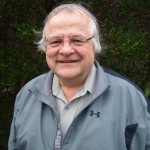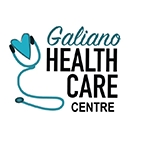 Finding a Doctor For Galiano…Time to Throw in the Towel?
Finding a Doctor For Galiano…Time to Throw in the Towel?
In her article, “Health on Galiano”, Jean Krebs has offered some interesting thoughts on our need to “think outside the box” in finding a way to meet the health care needs of Galiano residents. I first want to thank Jean for taking the time to write this thought-provoking article. I certainly don’t think that the GHCS board as a group or I as an individual “have all the answers” and welcome others to join the conversation on where we can go from here.
Jean’s main point is that our attempts to find a full-time physician for Galiano may be futile, given the shortages that exist and the limitations of island life for a physician, of which she lists eight. She raises concerns about what will happen if we lose our locum coverage, and offers five suggestions as to alternative methods we could use to fulfill our health care needs. Before responding to Jean’s suggestions, let me outline the situation as it exists now.
For many years Galiano has been allocated a position for a full-time physician under VIHA funding, and that allocation remains in place to the current day. That physician is required to provide two types of service: general medical services to his or her patients during regular clinic hours, and on-call emergency coverage when the clinic is closed. Although physicians and nurse practitioners (NPs) are required to be available to their patients after-hours, they have no responsibility for those who aren’t their patients, including visitors to the island, islanders who see an off-island physician and islanders who haven’t had cause to see a physician at all. Further, their after-hours “availability” to their patients can take many forms, ranging from being available any time to see patients in-person to having an answering machine telling the patient to call 911, a physician on one of the other islands or the nearest emergency room. Simply put, the physician and NP have no obligation to be personally available on-island outside of clinic hours. The salary of the physician as it currently stands, however, includes money for the physician to be available on-island to handle medical emergencies of both patients and non-patients for at least part of each week. It is the GHCS’s view that on-island emergency medical coverage is critical for the health and well-being of islanders and also makes economic and just plain common sense. When there is no physician more people are evacuated off-island which is a very costly process in both human and dollar terms.
Could this be solved by having a full-time NP? The GHCS board has carefully considered this possibility, and concluded that although we very much value the NP services we currently have it would be inadvisable to replace the physician with an NP for several reasons. First, the NPs are not allowed to provide on-call emergency services for anyone who is not his or her patient. Second, finding an NP may be just as difficult as finding a physician. Although there are many trained NPs who need a job, as Jean points out, only a small minority of them are oriented towards rural general practice. The large majority of NPs are in fact oriented toward specialty practice in fields like cardiology, chronic disease, psychiatry or obstetrics. Hence, the pool of available NPs is not necessarily that big. Likewise, all of the eight deterrents for doctors that Jean lists apply equally to NPs. Third, there are a number of procedures that a doctor can perform that an NP cannot, and many of these are precisely the procedures that are needed in an emergency situation. This may include, for example, the ability to suture a wound or give a particular medication. The bottom line is that although NPs provide valuable services, they are not substitutes for doctors, particularly when it comes to providing emergency services.
Jean also suggested several other solutions, most of which involve having the position on Galiano shared by doctors who live elsewhere, perhaps on Salt Spring, on a rotating basis. This plan has two major limitations. The first is that, as a recent Island Tides article by our own David Beaver points out, the doctors in those places are already working to the max and not likely going to want to add us to their “to do” list. The second is that if we rely on doctors who come for a day or two we lose all of our after-hours emergency medical services. It might solve the problem for the clinic coverage, but not for the on-call coverage.
Jean mentions a rumour that there is a doctor who is looking at providing part-time services on Galiano. This is indeed true, and the board is actively exploring this possibility with both the doctor and VIHA, but it is still “early days” so nothing is certain. I do want to assure people that we will do all we can to make this work out, but it’s not yet a “done deal.”
Jean also raises the issue of locum coverage being cut. We were told a few weeks ago that we would have our locum coverage cut between now and March and discontinued altogether after that. After several letters expressing concern were sent to the powers-that-be we recently received letters from both the Minister of Health and our MLA saying that no cuts will occur. In short, although it looks like this crisis has been averted we’re still in the process of making sure that everyone in Victoria is on the same page on this. If further threats to our ongoing locum coverage emerge, rest assured that we will be informing the community and asking for your help in fighting such cuts.
More broadly, like Jean, I have great regard for the innovativeness and know-how of Galianoites, and echo her invitation for everyone to get involved in finding ways to solve our health care crisis. I would ask any islander to feel free to contact me at any time (jschmidt@uniserve.com) expressing concerns, asking questions or proposing strategies we might use. I’d also encourage interested islanders to seriously consider serving on the GHCS board (we’ll have 5 openings come April) or joining GHCS committees so the society can remain a strong, proactive voice in support of your health care needs. Again, thank you Jean for your thoughts and your call to action.

